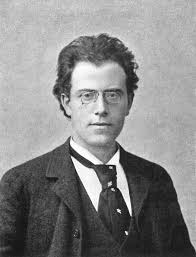Gustav Mahler
Born at Kaliste in Bohemia, the son of a Jewish pedlar, Gustav Mahler later described himself as three times homeless, a Bohemian in Austria, an Austrian among Germans and a Jew throughout the world, everywhere an intruder, never welcomed. His principal musical training was at the Vienna Conservatory, after which he embarked on a career as a conductor which took him to important positions in Budapest, Hamburg and finally at the Vienna State Opera, where he made a number of major reforms. Hostility fomented by sections of the press forced his resignation in 1907, after which he briefly continued a distinguished international career as a conductor, notably in New York, until his death in 1911. As a composer Mahler wrote symphonies that absorbed into their texture and form the tradition of German song in music that reflected in many ways the spirit of the time in which he lived, in all its variety.
Orchestral Music
Mahler completed nine symphonies, leaving a tenth unfinished, in addition to Das Lied von der Erde (The Song of the Earth), a symphony in all but name, settings of a series of poems derived from the Chinese. The first of the symphonies, sometimes known as “Titan”, includes a remarkable ironic funeral march that transforms a nursery tune. Symphonies Nos. 2, 3, 4 and 8 make use of voices, the last of these on a massive scale. The symphonies, in their variety of mood, offer a reflection of the world, with music that may occasionally be garish and yet often reaches unsurpassable heights.
Vocal Music
In addition to the vocal element in his symphonies, Mahler wrote a number of songs of singular beauty, some of which were re-used in orchestral settings. The songs include settings of poems from the Romantic anthology Des Knaben Wunderhorn (The Boy’s Magic Horn), Lieder eines fahrenden Gesellen (Songs of a Wayfarer) and Rückert’s Kindertotenlieder (Songs of the Death of Children).

